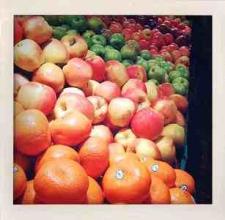Blog Post: When Is Organic Important?

Organic seems to be one of those buzz words that just won’t go away. We assume when things are more natural, they are better for us, and generally that is correct. In a perfect world we would all be able to eat 100% organic 100% of the time, but this is neither economically or socially possible. There are some fruits and veggies that are more likely to be carrying residual pesticides from the farming process that you definitely don’t want in your body.
A general rule of thumb for produce is that if it has a skin (avocados, bananas, mangos, pineapples, kiwis) you don’t necessarily need to buy organic. The left over pesticides are mostly on the part you wouldn’t eat anyways. Asparagus, broccoli, cauliflower, onions, and sweet peas also fall under this category. The produce that you should definitely be buying organic are celery, peaches, strawberries, apples, blueberries, spinach, bell peppers, and leafy greens. Some of these have an astounding 60 pesticides left in them after washing! By buying organic produce you’re also supporting smaller farms, which in turn have a more positive effect on the environment.
For meat it’s a much more complicated issue. One of the primary reasons many people choose organic meat products is because of the way the animals are treated before slaughter. For meat to be deemed organic it has to be antibiotic and growth hormone free, not fed genetically modified foods or be genetically modified itself, and fed only vegetable source foods. This results in a much more humane process where animals are raised outside of cages. One of the primary causes of global warming and pollution is factory farming. By buying locally sourced organic meat you are drastically cutting down on your carbon footprint while making ethical choices. For meat, milk, and eggs buying organic is always your best bet.
While there is no evidence that organic food is more nutritious, you are certainly making more responsible decisions for your body and the environment by choosing to eat organic food as often as you can. Multiple studies have shown that it is most important for children and pregnant women to avoid pesticides and unnatural hormones. Mostly it is important to be mindful of where your food comes from and try to make responsible choices with your diet.
For further reading:
http://www.thedailygreen.com/healthy-eating/eat-safe/Dirty-Dozen-Foods
http://gourmetfood.about.com/od/slowfoodorganiclocal/a/organicproduce_2....
http://www.businessweek.com/magazine/content/04_36/b3898129_mz070.htm
http://www.care2.com/greenliving/why-buy-organic-dairy-meat.html#
http://network.nationalpost.com/np/blogs/theappetizer/archive/2008/04/22...
__________
Category:


































